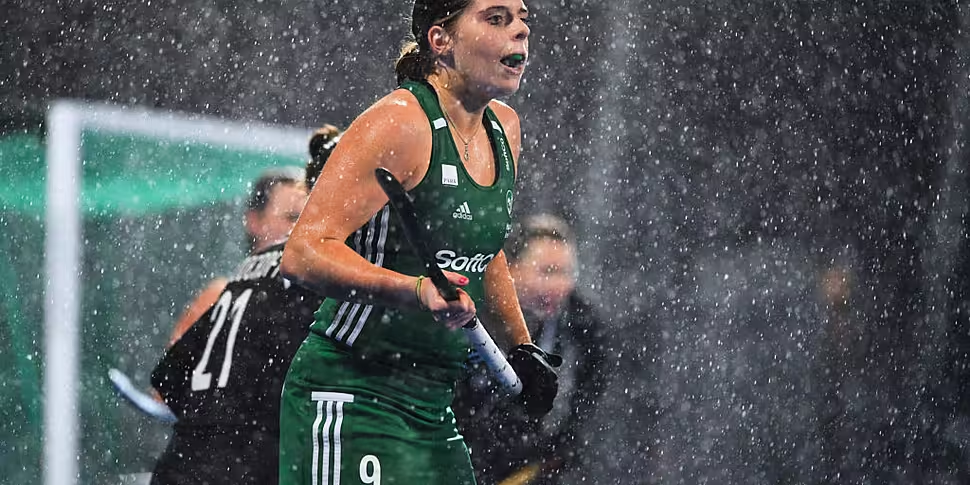The captain of the Irish women's hockey team has urged athletes to get injuries looked at promptly - as the repercussions of playing through injury could 'really hinder' them in the future.
Katie Mullan says there's often a 'grey area' between toughness and pain, but the key is to keep focused on an athlete's ultimate goal rather than just the upcoming match.
It comes as a new Trinity College study found that many athletes fear being judged as weak when they experience pain or injury.
The research - which focused on rowers - found many athletes felt that they had to continue competing and training when in pain.
Speaking on Lunchtime Live, Katie Mullan - captain of the Irish team that finished second in the 2018 Women's Hockey World Cup - said there's 'no one answer or solution' when it comes to balancing pain and toughness.
She said: "It very much comes down to the individual athlete and their injury.
"The biggest thing is knowing what the ultimate goal is - and if playing in the next match is a step towards that, or if it might hinder you towards the overall goal.
"As athletes we give up and we sacrifice so much, that sometimes the risk of being involved in playing can outweigh the pain factor."
Katie recounted her own personal experience, saying she has sometimes delayed informing coaching or physio teams about an issue 'to get through the next game'.
However, she said: "Injuries can have such a long-term effect on your career - what you think now might be the most important game of your career actually won't be.
"It's very important to get things repaired and taken care of at the time - in the long-run, that game you missed out or that tournament will be irrelevant in your future career.
"The repercussions of playing through injury might really hinder you in the future. It's about trying to think about the bigger picture."
Study
The author of the Trinity report - Dr Fiona Wilson - also spoke to Lunchtime Live to explain the findings.
She said: "Our research suggested there are two different camps: there's ones who feel they're in a culture where they can be quite open about their injuries, but it seems like a greater majority feel they will be judged as being weak.
"One of the participants in our study says his coach treated the team like a box of eggs - he'd throw the box of 12 eggs at the wall and see which ones didn't break, and keep those.
"This idea that pushing for resilience and toughness has almost been misinterpreted by athletes - thinking they can't let people know when they have pain or injury."
Dr Wilson said that flagging injury early is one of the best things people can do to ensure it is treated.
She also noted that her research looked at a broad sample of athletes, from professional to amateur - and the issue seemed to be 'pervasive' across the groups.









